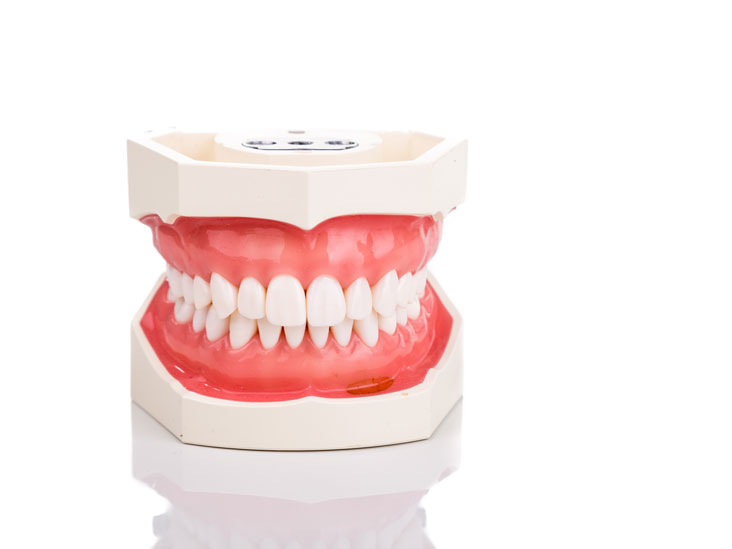
Common gum diseases, causes and how to prevent
April 14, 2022
Common gum diseases, causes and how to prevent
Did you know it’s estimated around 40% of adults are being impacted by gum diseases? That’s a huge number. Having gum problems or unhealthy gums can impact a person’s life massively. But can you improve gum health if you currently have gum disease or gingivitis? We’ll cover that in this blog and much more. So, let’s get started, shall we?
First of all, what is gum disease and gingivitis?
Gingivitis is a mild form of gum diseases. Many people who have gum disease would have started with gingivitis, and without treatment, gingivitis can progress to more serious gum disease. Gingivitis is usually characterized as gum
inflammation and is caused by bacterial build-up around the gum line. This bacterial build-up can build along the gum line, but also under, which causes gum infection.
Most people suffer with gingivitis at some point in their life, and when you have mild symptoms it’s easy to ignore, but not getting the correct treatment can lead to further issues. The good news is that gingivitis is easily rectified, and your tooth, jaw and gums should be unaffected.
Gum disease, also known as periodontal disease, is when the gum line pulls away from the tooth, creating pockets under the gumline. When these pockets fill with bacteria and become infected it causes gum disease. This is much more serious and needs urgent attention as it can cause permanent damage and even tooth loss. You may be referred to a specialist for periodontitis treatment where they will professionally clean your teeth and gum tissue, but also may advise further treatment options.
What are the symptoms of gum disease?
Symptoms may vary, depending on the severity of gum disease, but here are some of the common ones:
1. Purple or red gums
2. Gum inflammation
3. Gum recession
4. Bleeding gums randomly or when brushing/flossing
5. Your teeth are loose
6. You have bad breath
7. Sore or painful gums
8. You can visibly see the gum pulling away from the tooth
Now we’ve covered what gum disease is, we’re going to cover what the causes of gum disease are.
There can be many reasons why someone may get gum disease, but here are some of the common reasons.
1. Poor dental hygiene. Ultimately gum disease is caused by plaque buildup, if you have poor dental hygiene this will increase your risk significantly.
2. Smoking interferes with normal cell function within your gums and therefore can leave you more susceptible to gum disease.
3. Hormonal shifts, such as pregnancy can affect your gum health. Whilst it’s not a guarantee that your oral health will suffer during pregnancy or hormonal shifts it’s important you take additional care during these times.
4. Medications. Some types of medication can affect your saliva production, where there is a reduction in saliva it can increase the bacteria build up in your mouth. A dry mouth is a better environment for bacteria to flourish and
therefore medications that reduce saliva production can leave you more prone to gum disease.
5. Misaligned teeth. You may be more prone to gum disease if you do have misaligned teeth as it can be harder to effectively brush your teeth, and perform interdental cleaning.
6. Nutrition can play a role in healthy gums, you may be more prone to gum disease if your diet is lacking in vitamin C and high in sugars.
Now, how can you prevent common gum disease?
1. Visit your dentist and hygienist often. Visiting a specialist to assist you in professional cleaning will help massively. If you do have gingivitis or early signs of gum disease you may be referred to a periodontist who will assist you with gum recovery and professional cleaning.
2. Maintaining good oral hygiene. Good oral hygiene is the number one way to reduce gum disease, ensure you’re brushing at least twice a day and flossing.
3. Maintain a balanced and healthy diet. Our diet affects all parts of our bodies including our gum health.
4. Stop smoking. While it’s a big ask, ditching cigarettes can have huge benefits for you, especially if you have active gum disease or gingivitis.
To conclude, if you’re wondering, is gum disease curable? We want to reassure you that gum disease can be cured and managed. But if you do have gum disease, treatment is essential. Periodontitis treatment is available both privately and through the NHS. Ensuring that you stay up to date with routine check-ups and hygiene appointments will keep you well on top of your oral health.
Here Are Some Relevant Pieces You Can Read About Gum Contouring

 Head Office - UK - Unit 1 B 132 Weyhill Road, Andover, Hampshire England, SP10 2PR.
Head Office - UK - Unit 1 B 132 Weyhill Road, Andover, Hampshire England, SP10 2PR. 








